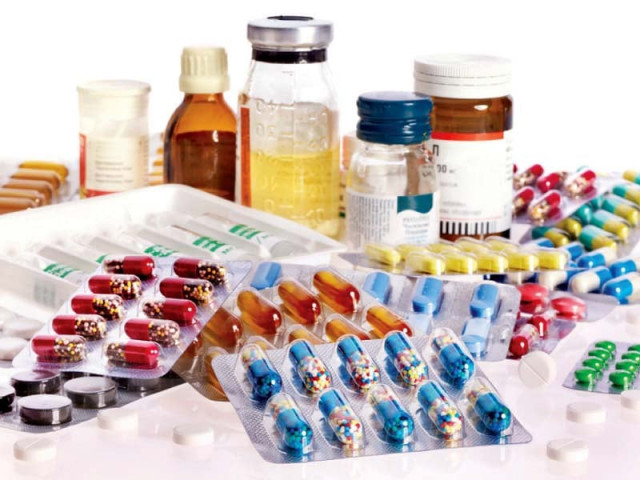K-P hospitals may import unregistered life-saving drugs
Health department says, subject to DRAP approval, institutions may purchase medicines from global market

PHOTO: FILE
The life-saving drugs could be imported following approval from the local office of the Drug Regulatory Authority of Pakistan (DRAP).
The directions were issued from the health secretariat in a letter which stated that the department has received complaints of non-availability of certain drugs to save lives for the reason that they were not registered with DRAP.
“These drugs are required in individual cases, for limited use in critical condition and have no alternative or any other option but to be imported,” a letter addressed to the health department and health directorate officials read.
A copy of the letter available with The Express Tribune reads that while import and sale of unregistered drugs was an offense under Section 23 of the Drug Act 1976, a section of the law allows the hospitals and institutions to import such life-saving drugs.
Officials concerned have been directed that when required such drugs, the hospitals or institutions should approach the deputy director general DRAP to seek approval for import. Officials however been directed to maintain record of the import and usage of such drugs.
Shortage of life-saving drugs
While hospitals and tertiary health institutions have been allowed to import drugs not available in the country, many primary health centres were facing shortage of locally produced medicines.
According to reports, most of the healthcare centres in Khyber-Pakhtunkhwa lack sufficient stocks of life-saving drugs owing to the untimely release and inadequate allocation for medicine funds, official documents show.
As per official figures, around 760 Basic Health Units (BHUs) and 96 Rural Health Centres (RHCs) across the province offer healthcare services to the people. However, stocks of life-saving medicine continue to lag at 60 per cent.
To ensure adequate stocks of medicines in primary health care facilities, the health department took a number of steps such as negotiating a central contracting rate for medicines periodically, a move which proved to be cost effective.
Moreover, the health department hired logistics officers in each district to manage affairs at the district level and to ensure that the procurement process is completed in time.
However, an inadequate budget for medicines at facilities run by district governments and untimely release of funds continues to hamper the availability of life-saving medicines. While the issue of inadequate budget allocation varies across K-P, it is mostly concentrated at RHCs where, on average, districts allocate around Rs475,000 for each centre, official documents show.
RHCs provide around the clock services to a large population. By comparison, a BHU – which receives Rs450,000 – operates for six hours a day.
Published in The Express Tribune, October 31st, 2017.



1725254039-0/Untitled-design-(24)1725254039-0-208x130.webp)















COMMENTS
Comments are moderated and generally will be posted if they are on-topic and not abusive.
For more information, please see our Comments FAQ